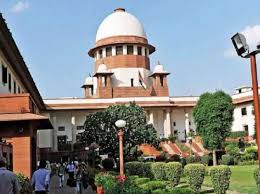Radhey Shyam Yadav, Lal Chandra Kharwar and Ravindra Nath Yadav are the three appellants. On 25.06.1999, they were appointed as Assistant Teachers at the Junior High School, Bahorikpur, Maharajganj, District Jaunpur, U.P. (hereinafter referred to as ‘the School’). From October, 2005, abruptly their salaries were stopped. They moved the High Court for redressal. Both the learned Single Judge and the Division Bench declined them relief. Aggrieved, they are before us in these Appeals. (Para 2)
The Learned Single Judge, by order dated 10.09.2013, held that if based on the forged order, proceedings were initiated for the selection of Assistant Teacher, then the entire selection needs to be cancelled. It was also held that since forgery was committed by the persons involved in the selection of Assistant Teachers and since the selection process was not fair, being based on a forged letter, the candidates who were selected in the selection process are not entitled to be appointed and retained on the post of Assistant Teacher, and holding so, the writ petitions were dismissed. The appellants filed writ appeals. By the impugned order, the appeals were dismissed reiterating the findings of the learned Singe Judge. (Para 10)
Assuming the case of the State to be true and taking it at its highest, the factual position would come to this, namely, that while the State sanctioned two vacancies, the school went ahead and recruited three. The State has no proof of commission of any malpractice by the appellants. The State approved their appointments, and the approval order till date has not been cancelled. The appointments have not been terminated. No action has been taken against the school and the school continues to receive the aid. (Para 22)
The situation of the appellants in the present case is no different from the individuals whose appointments were protected in the cases cited hereinabove. They had no blameworthy conduct. They were bona fide applicants from the open market. The alleged mischief, even according to the State, was at the end of the School and its Manager. It will be a travesty of justice if relief is denied to the appellants. Enormous prejudice would also occur to them. (Para 30)
We feel that the appellants were not at fault and the State could not have abruptly stopped their salaries. Accordingly, we set aside the judgments of the High Court dated 15.09.2021 in Special Appeal Nos. 1435/2013 and 1445/2013 and direct that the State shall pay the salaries of the appellants for the period from 25.06.1999 till January, 2002 in full. We also direct that insofar as the period from October, 2005 till today is concerned, the State shall pay the appellants 50% of the backwages. Since the appointment order and the approval order are still in force, we declare that the appellants have always been and are deemed to be in service. Apart from 50% backwages, as ordered above, we direct that all consequential benefits, including seniority, notional promotion, if any, and fitment of salary and other service benefits due, be granted to the appellants. We direct the State to comply with these directions within four weeks from today. We also direct that the appellants be allowed to commence work within the said period of four weeks. (Para 34)
SUPREME COURT OF INDIA
2024 STPL(Web) 5 SC
[2024 INSC 7]
Radhey Shyam Yadav & Anr. Etc. Vs. State Of U.P. & Ors.
Civil Appeal Nos. 20-21 of 2024 (@ Special Leave Petition (Civil) Nos. 3877-3878 of 2022)-Decided on 03-01-2024.
https://stpllaw.in/wp-content/uploads/2024/01/2024-STPLWeb-5-SC.pdf







